Alan Kurdi: Has one picture shifted our view of refugees?
- Published
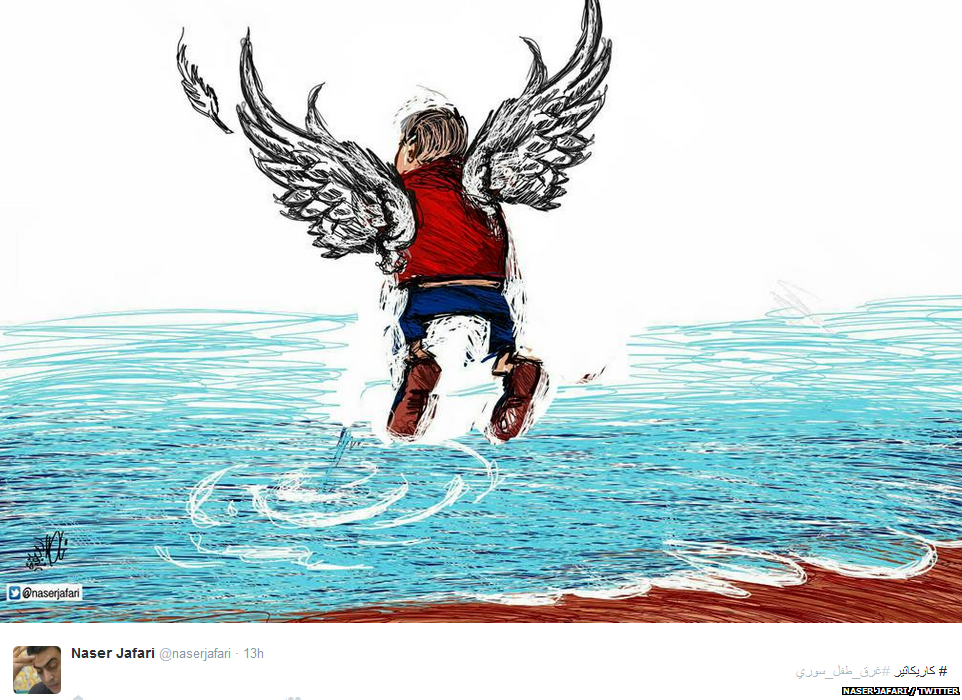
A huge online conversation is taking place around the picture of a dead 3-year-old Syrian boy from Kobane, washed up on a Turkish beach. Will it change the way the world views Syrian refugee migrants?
Warning: This article contains a distressing image
The picture was of Aylan Kurdi, one of 12 Syrians who drowned off the coast of Turkey as they tried to reach the EU by boat. They were heading towards the Greek island of Kos.
A Turkish news agency shared the picture of his lifeless body being washed up and carried ashore by a Turkish policeman and it has sparked a huge - and global - surge on social media.
Here are five of the biggest talking points.
1. 'Humanity washed up ashore'
This Turkish phrase was used as people first began to share the picture using a Twitter hashtag ("#kiyiyavuraninsanlik, external"). It has been used 200,000 times in the past 24 hours. Other tags, such as "where children die in the world," also trended.
Turkish internet users commented on the moral issues the picture raises. "You should be quiet when kids are asleep, not when they die," said, external Ba Bacio. "Forgive us child, we did not care about you as much as we do for beached whales," said, external Burak Ates.

Follow BBC Trending on Facebook
Join the conversation on this and other stories here, external.

In English, debates soon emerged over whether the picture would change the way Europe views its refugee crisis, and debating, external how this image was different from the other graphic pictures that emerged from Syria.
2. Here is how we should remember him
Images that seem to show Aylan Kurdi and his 5-year-old brother Galip alive, and in happier times, soon emerged onto social media.
It's not clear where these images were first used, although Canada's National Post featured the pictures, external alongside an interview with the children's aunt who lives in Vancouver, and other journalists, external have said family members shared these pictures.
Online, many people are sharing these images and many are commenting that it's a better way to remember Aylan Kurdi. His name has now been used 50,000 times on Twitter.
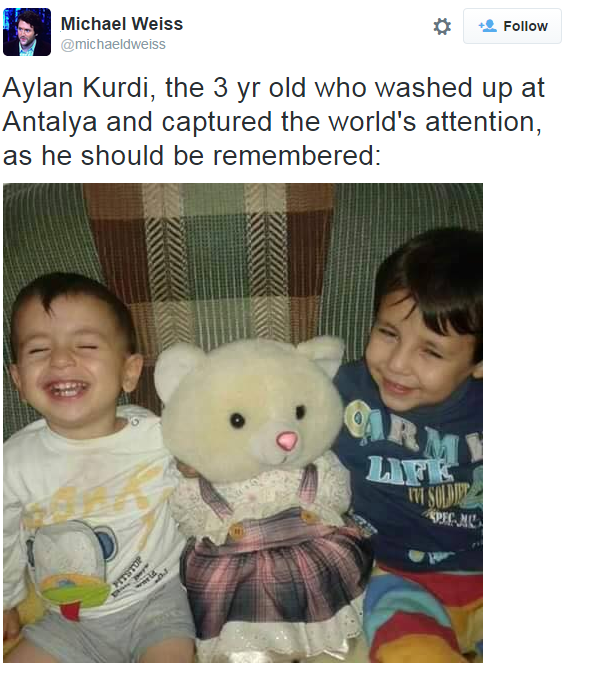
3. Is it even right to share this image?
The BBC has chosen to publish only one photograph of Aylan, in which he is being carried by a Turkish police officer and is unidentifiable. However, several news organisations have published more graphic images of the boy.
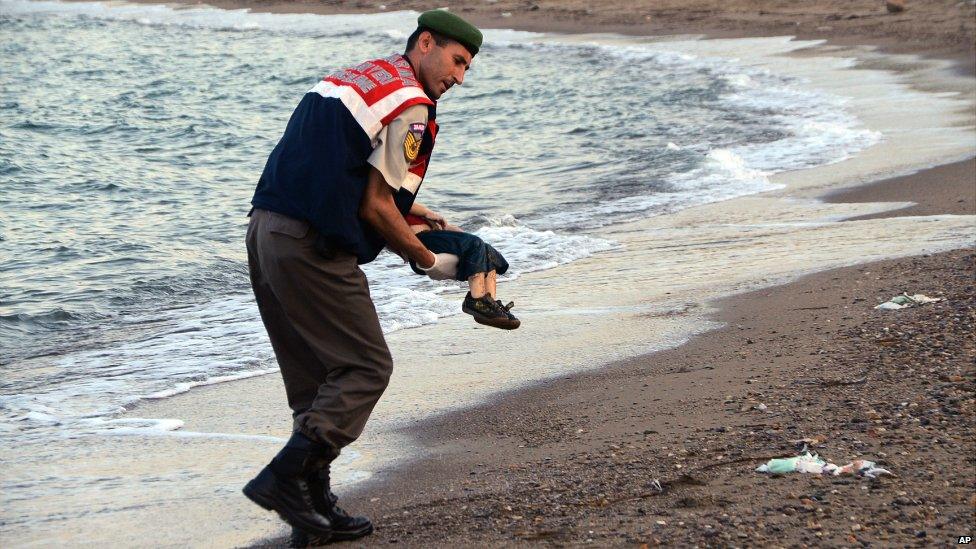
The boy's lifeless body was captured in a series of images released by a Turkish news agency
On social media there was a similar debate about what purpose was served by retweeting or sharing such a graphic image. A blog post, external by human rights watch was widely shared, arguing the image being shared might influence European leaders. But many others, external urged people not to share the image, as it was too heartbreaking and graphic to take in.
4. 'The Arab conscience is dead'
There was an even bigger conversation about the pictures in Arabic than English, with 300,000 messages on Twitter using the tag "A Syrian Child Drowns, external". Many shared cartoons and memes commenting on the moral issues raised.
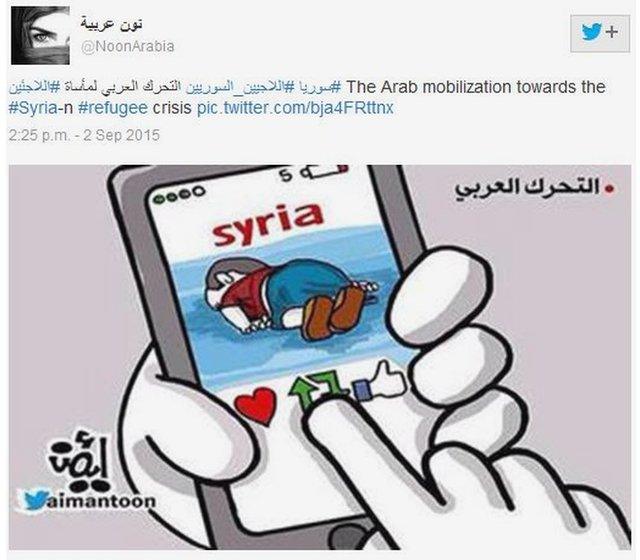
By Thursday, another Arabic tag was trending - "Arab Conscience". People using it argued that the Arab world was abrogating its responsibility towards these Arab refugees, who were instead heading to the West. The campaign to ask wealthy Gulf states to change their restrictive rules on refugees also picked up steam - with 12,000 messages declaring that "there is a popular demand to let in refugees, external" in Saudi Arabia.
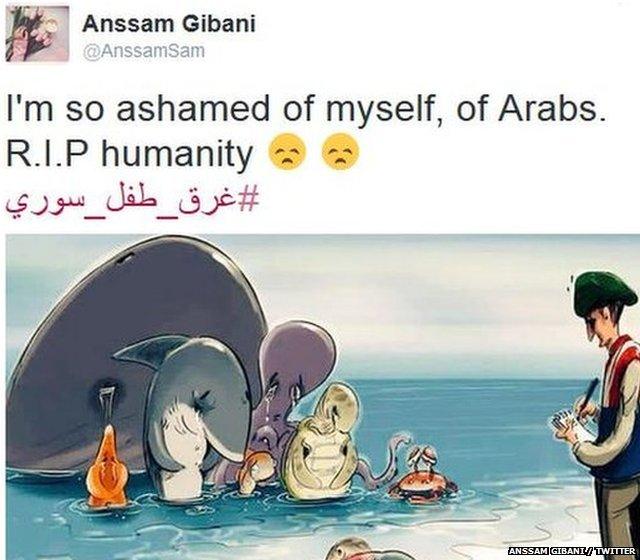
5. Demands to change the West's asylum system - including in the UK
The demand to lift restrictions on asylum laws also surged further after the picture emerged. The "Refugees Welcome" tag, discussing Germany's relaxation of restrictions, gained an additional 74,000 tweets, and nearly 20,000 more used the English phrase "People Not Migrants, external".
A petition, external on the UK Parliament's website calling on the government to "Accept more asylum seekers and increase support for refugee migrants in the UK" saw a rapid surge in signatories - adding 150,000 new names on Thursday. It now stands at 240,000 signatories. The threshold for Parliament to consider the topic for a debate is 100,000 signatories.
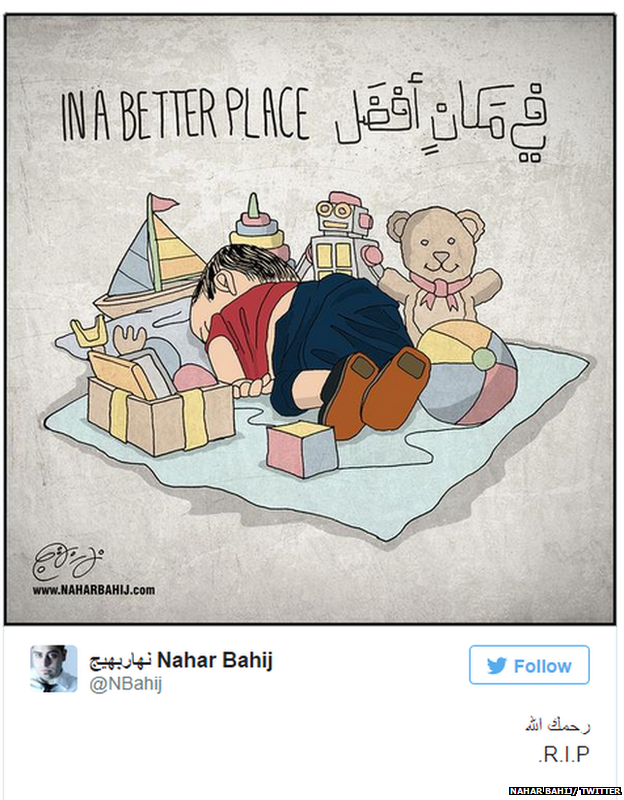
Blog by Mukul Devichand
Research by Ravin Sampat, Mai Noman, Samiha Nettikara and Emre Bal
You can follow BBC Trending on Twitter @BBCtrending, external, and find us on Facebook, external. All our stories are at bbc.com/trending.